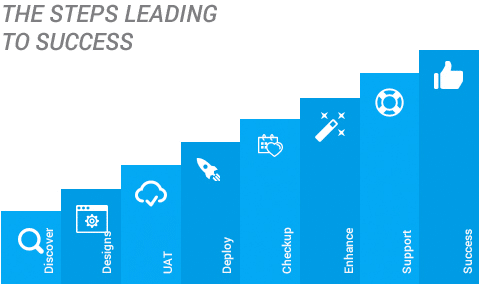Lean leadership is an idea that the primary principles of lean management can be incorporated into an effective leadership style for use across any industry.
Weaving lead leadership into the fabric of a corporate culture can help with continuous improvement — i.e. progressive steps to streamlining workflows and focusing only on processes that add value — but it can also help empower and motivate employees.
The concept of lean leadership also isn’t something that should be practiced only on a managerial level — every employee in an organization can and should be a lean leader.
So how can a business recognize and cultivate lean leadership? Recognizing and encouraging the following handful of qualities is a great first step.
Process-Oriented Thinking
Lean leaders aren’t ones to demand positive results no matter the cost. In their case, the end doesn’t necessarily justify the means. Instead, lean leaders have the ability to take a step back and examine the processes that can lead to the right results.
In their mind, the right process will lead to the right results.
Clear Expectations and Accountability
Communication is obviously key to this quality. Lean leaders clearly vocalize their needs. They establish sets of expectations for a particular task or project and don’t allow ambiguity to creep into their communications. Vague expectations can cause duplications in work, miscommunications or just generally waste people’s time while they scratch their heads trying to figure out their leader’s meaning.
Once lean leaders set those clear expectations, they then have no issue holding people accountable. They expect those around them to take ownership of their tasks and complete them within the allotted amount of time.
Knowing When To Lead and When To Follow
Part of being a lean leader is an ability to read situations well. If there is a vacuum and leadership is needed, a lean leader won’t have an issue stepping up and taking charge.
But then again, a lean leader also knows when it’s time to step back and allow others to lead. Putting leadership on a project or task in someone else’s capable hands is a important act of cultivating leadership qualities in colleagues.
Be Free With Praise But Also Be Honest
Lean leaders are respectful and dole out praise far more than they criticize. Correcting issues is obviously important for the learning process, but lean leaders should aim for a 5-to-1 praise to criticism ratio when addressing colleagues.
That being said, lean leaders always aim for honesty. Sugarcoating the truth doesn’t help anyone involved.
Practice What You Preach
The old adage “practice what you preach” is particularly important for lean leaders. Nobody is going to buy what you’re selling if you’re not living it yourself, whether that’s lean principles, continuous improvement or any other concept.
Yes, the lean leader should obviously act a role model for others, but they should also teach leadership and encourage those qualities in those around them.





